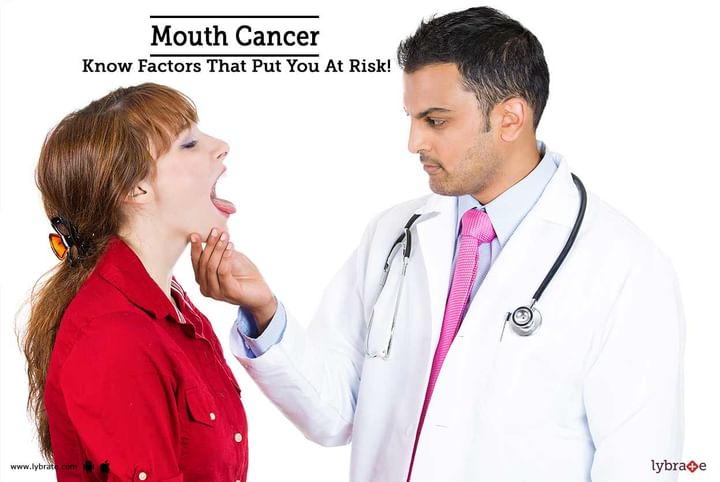Mouth Cancer - Know Factors That Put You At Risk!
The big ‘C’ or cancer is the most dreaded disease, but in most types of cancer, an early diagnosis can stop the progression of the disease and cure it. Mouth cancer or oral cancer is one such type of cancer that can be treated and cured is diagnosed in its early stage.
This type of cancer can affect any part of the mouth including the lips, tongue, throat, salivary glands, sinuses, larynx and pharynx. Some of the symptoms to look out for are:
- Velvety red, white or speckled lesions on any part of the mouth
- Lumps or patches in and around the mouth and throat
- Sores that do not heal within 2 weeks and bleed easily
- Swelling of the lips or gums
- Pain and tenderness in the mouth
- Numbness in any part of the mouth, face or neck
- Difficulty moving the tongue or jaw that affects chewing, swallowing or speaking
- Loose teeth
- Unexplained bleeding in the mouth
- Prolonged soreness or hoarseness of the throat
- The feeling of something being stuck in your throat
- Pain in one ear without any loss of hearing
- Drastic weight loss
Some people have a higher risk of suffering from mouth cancer than others. Some of these risk factors are:
- Men have twice the risk of developing oral cancer as compared to women.
- Men above the age of 50 are at the highest risk
- Cigarette, cigar or pipe smokers have a higher risk of developing oral cancer than nonsmokers
- Chewing tobacco products and other such smokeless tobacco can also increase the risk of oral cancer
- Excessive alcohol consumption makes a person more vulnerable to this disease
- Family history of cancer
- Excessive exposure to UV radiation from the sun at an early age
- Certain strains of Human papillomavirus (HPV).
Visiting a dentist regularly can dramatically reduce your chances of suffering from mouth cancer. Ideally, an oral cancer screening should be performed once every 3 years up to the age of 40 and annually from there on. This is because a dentist will be able to examine your mouth and see parts that you cannot see easily. In case he suspects oral cancer, a biopsy may be needed to further confirm the diagnosis.
Further tests such as blood tests, X-ray and scans may also be needed. The smaller the ulcer, the easier it is to cure. Oral cancer can be treated with surgery to remove the tumor or through radiation and chemotherapy.



+1.svg)
